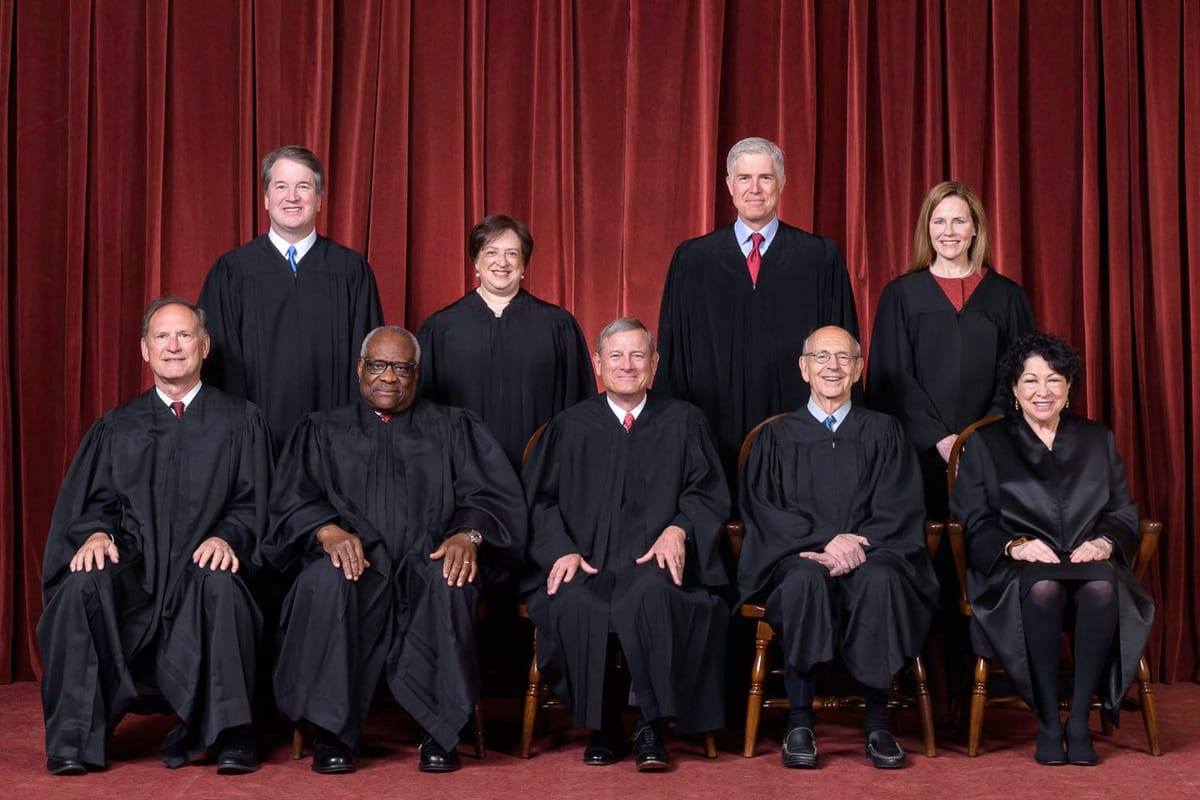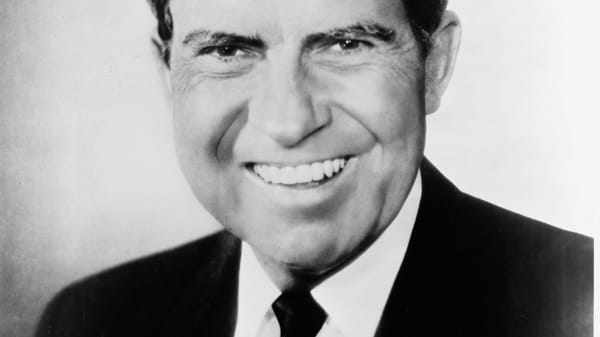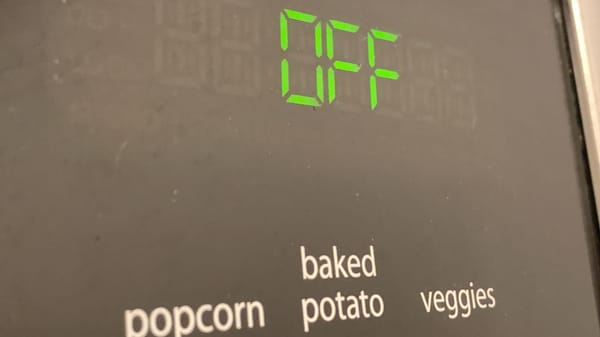Indignity Vol. 2, No. 36: Everybody's got an opinion.
PRELIMINARY JUDGMENT DEP'T.

The End of Roe Was Decided in Advance
THE DOCUMENT THAT came out of the Supreme Court Monday night, declaring an end to Roe v. Wade, was not the law. It was, and is, still a draft opinion, apparently on its way toward being issued, in some future form, as the court's official ruling on the Mississippi abortion-ban case of Dobbs v. Jackson Women’s Health Organization—with the support, Politico's Josh Gerstein and Alexander Ward reported, of five justices.
What do we know now that we didn't know Monday afternoon? Roe has been unquestionably doomed since Republicans speed-confirmed Amy Coney Barrett into Ruth Bader Ginsburg's seat to beat the 2020 election, and it was essentially finished from the moment the Federalist Society and Donald Trump got Anthony Kennedy to agree to turn his seat over to Brett Kavanaugh in 2018. It was functionally repealed in September of last year, when the five-member right-wing majority issued a brief order, over the dissent of the Chief Justice John Roberts and the liberal minority, allowing a Texas anti-abortion law to take effect while challenges to the law were being heard. Right now, there are people in the United States who can't get abortions that were supposed to be protected under Roe.
But the text of the leaked draft, written by Samuel Alito, would make the implicit state of abortion rights under this Supreme Court explicit: "The Constitution makes no reference to abortion, and no such right is implicitly protected by any constitutional provision."
And however unsurprising the judicial content of the draft may have been, the fact of its leaking was a shock. The Supreme Court may not be leakproof, but it cultivates the reputation of being that way; pending decisions are supposed to be hazarded at through informed rumors, not read in full-text pdfs. Even after Gerstein and Ward produced the document for Politico, other reporters on the judicial beat were unable to shake loose additional copies of their own.
Under the basic conventions of news-breaking and news reading, this made the draft a scandal. A leaked document is, by definition, something that somebody wanted to keep away from the public, and which somebody else wanted the public to see. The act of bringing a thing to light tells the audience that the thing itself was something shadowy.
Symbolically and substantively, this is a fair reading of the Alito decision. The draft overturning Roe is the culmination of a long-running influence campaign, fed by secret donations and guided by backroom agendas, to produce a policy result contrary to existing law, against the preferences of the general public. Instead of swaddling the decision in a clean copy of the constitution and presenting it on a morning of the court's choosing as the necessary and neutral consequence of our laws, the majority has been caught smuggling something sordid and politically contingent under its judicial robes.
None of this, however, proves that the leak was designed to embarrass Alito. Like a lot of people, I initially took it to be some bold, desperate act by an infuriated liberal justice or clerk, trying to warn everyone of the outrage to come. But if Samuel Alito and his colleagues were embarrassed by the same things that would embarrass someone like me, this would be a very different country.
Republicans seized on the idea that the leak was an act of sabotage with, if anything, more enthusiasm than Democrats. Their denunciations of how some unknown leftist had attacked the institution of the court from within were delivered with a degree of rage so far ahead of the facts that it started to seem a little improbable, if not insincere. Sen. Josh Hawley, whose respect for the rule of law led him to give the Jan. 6 anti-election demonstrators a supportive fist-pump, called for any clerk who would have leaked it to be disbarred, and any justice to be impeached. "The Court should not abide this coordinated assault by the Left," Hawley tweeted. "Issue the decision now."
Hawley's histrionics felt like a giveaway: to see Alito's decision declared law as soon as possible would be exactly what the right wing wants. Who benefits from the leak, then, really? It did infuriate supporters of abortion rights, but the Democratic Party's response to them quickly settled into its usual tones of learned helplessness. Joe Biden urged people unhappy with the unelected bloc of right-wing justices—most of them appointed by Republican presidents who'd lost the popular vote—to fix the problem through more voting, this time to elect "more pro-choice Senators and a pro-choice majority in the House to adopt legislation that codifies Roe." In a different universe, at the end of a chain of two years or ten years or 50 years of different priorities and decisions, the two Democratic senators from the state of Washington D.C. could have helped pass a federal abortion-rights law Tuesday morning.
In existing reality, though, the Supreme Court is the body making the abortion laws. And if the leak was an intra-Court gambit, it was hard to see how it would have advanced the goals of the liberals, who want to preserve Roe, or of the chief justice, who seemingly prefers to let states carve away Roe's protections bit by bit, rather than to openly discard the whole precedent.
Court-watchers noted that the draft dates back to February—which raises the question of why an anti-Alito leaker wouldn't have released it two months ago—so that now would be the time that court would circulate its dissents and concurrences. That is, now is when Roberts might be trying to pull some of the conservatives away from the brink.
Last week, the Wall Street Journal's editorial board published a warning that a "ferocious lobbying campaign" was underway to convince the Court to back away from overturning Roe in the Mississippi case. "The particular targets are Justices Barrett and Brett Kavanaugh, the two newest Justices," the editors wrote. The news of the leak made that complaint sound, in retrospect, more like a confession: whoever talks to the Journal editorial board was evidently worried that Barrett and Kavanaugh might not come through.
Now the existence of an opinion fully repealing Roe is on the record, and Barrett and Kavanaugh are named as having preliminarily supported it. If they were to soften their positions before the final opinion, even in the course of upholding Mississippi's ban, the anti-abortion movement would see it as a letdown, if not a betrayal.
Is speculating about the leak and the motives behind it (especially the speculation coming from the Republicans) a distraction from the contents of the draft? Alito would discard Roe, he writes, because the right to abortion is not "deeply rooted in this Nation's history and tradition," and therefore should be left to the states to decide. The same argument, he acknowledges, could be applied to the court's precedents about "intimate sexual relations, contraception, and marriage"—yet he assures the public that "abortion is fundamentally different."
"Nothing in this opinion should be understood to cast doubt on precedents that do not concern abortion," he writes.
That assurance is presumably worth as much as Kavanaugh's statement, under oath in his confirmation hearing, that Roe was "settled as a precedent of the Supreme Court, entitled the respect under principles of stare decisis." If he sticks with Alito's opinion, Kavanaugh will now be affirming instead that Roe was "egregiously wrong from the start" and "far outside the bounds of any reasonable interpretation of the various constitutional provisions to which it vaguely pointed." The five justices are not just elevating their judgment over that of the current other four, but over every majority to have ever followed the precedent in the past 50 years.
"[W]e cannot exceed the scope of our authority under the Constitution," Alito writes in the draft decision, "and we cannot allow our decisions to be affected by any extraneous influences such as concern about the public's reaction to our work." This is the same justice who gave a furious speech at Notre Dame after letting the Texas abortion ban take effect, denouncing the press and the court's other critics for having spread the "false and inflammatory claim that we nullified Roe v. Wade." The leaked draft is what the court wants to say. The leak is what it's saying.






